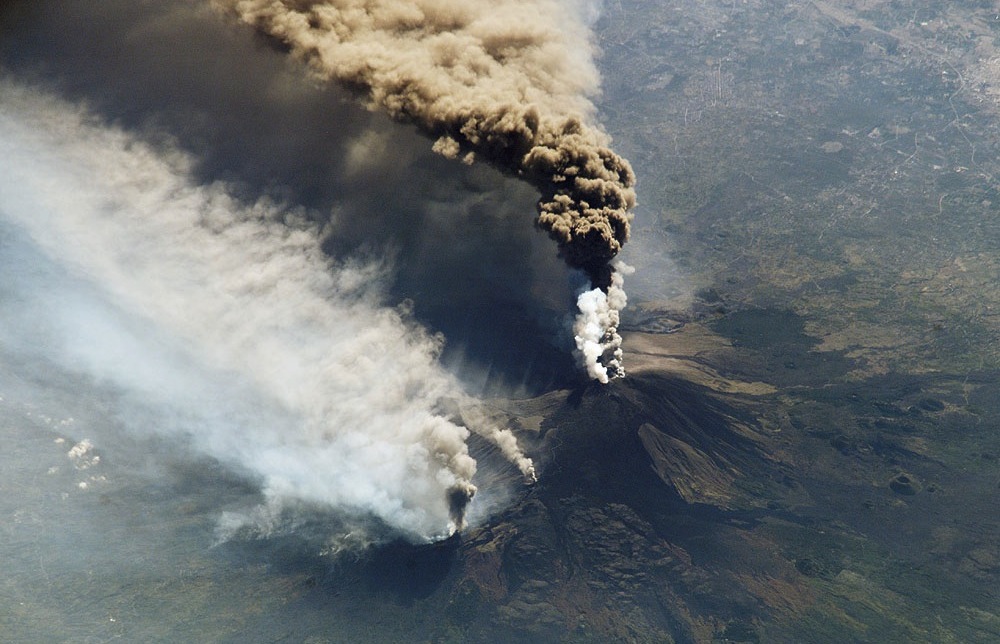Science
Leading Scientists Debunk Promising Geoengineering Concepts

A comprehensive study conducted by a team of leading ice and climate researchers has raised significant doubts about the effectiveness of various geoengineering concepts aimed at protecting Earth’s polar ice caps. Their research, published on March 12, 2024, details that none of the recently highlighted engineering approaches are likely to succeed, emphasizing the risks associated with untested ideas.
The study evaluates several speculative geoengineering proposals, including methods like dispersing particles into the atmosphere to reduce sunlight and using pumped water to refreeze ice sheets. These approaches, while ambitious, could result in unintended and potentially hazardous consequences, according to the findings.
Among the concepts discussed are the distribution of reflective particles over newly formed sea ice to enhance its durability, the construction of large ocean-bottom barriers to redirect warm water away from ice shelves, and the introduction of sulfur-based particles into the atmosphere to dim sunlight. The researchers, led by glaciologist Martin Siegert from the University of Exeter, highlight that the sunlight-dimming strategy could disrupt rainfall patterns essential for agriculture and exacerbate extreme weather events, including droughts and heavy precipitation.
The paper, which features contributions from 40 experts across fields such as oceanography, marine biology, glaciology, and atmospheric science, challenges the prevailing promotional narrative surrounding geoengineering. Siegert noted that these proposals often fail to address the fundamental issue of greenhouse gas emissions, which remain the primary driver of climate change.
“I think it’s fair to say that the promotion of some of these ideas has not adequately conveyed the challenges involved,” Siegert stated. He cautioned against creating unrealistic expectations about the potential of geoengineering solutions without acknowledging the significant obstacles to implementation.
The research team developed a set of criteria to assess the feasibility of five specific geoengineering concepts, which could also apply to other regions beyond the poles. They found that in nearly every instance, the financial costs and logistical challenges render these ideas impractical, while also questioning their effectiveness in combating global warming.
“We must avoid giving people false hope by suggesting that climate change can be fixed without cutting carbon emissions, which is the only real solution,” Siegert emphasized. He also pointed out that special considerations are necessary in polar regions, where harsh conditions and fragile ecosystems complicate any large-scale interventions. International treaties designed to protect the environment further hinder such measures, especially in areas like Antarctica.
Co-author James Kirkham, who serves as chief science advisor for a coalition of over 20 countries formed during the 2022 COP27 climate talks, expressed concern about the growing popularity of geoengineering concepts among policymakers. He noted that during the 2023 COP28 event in Dubai, various discussions promoted ideas categorized under the geoengineering umbrella, despite many climate scientists being alarmed by their traction.
Kirkham remarked, “The thing that really wound us up was that they were pitching these fringe ideas as if they had the backing of the entire research community.” The assessment indicates that no current geoengineering proposal meets the necessary standards for implementation in the near future.
In an email, Kirkham commented on the historical dismissal of most geoengineering ideas by the mainstream climate science community. However, he observed a shift in recent years, with increased funding and the involvement of public relations efforts to elevate these ideas in media discourse.
The study serves as a stark reminder that while innovative solutions are essential in the fight against climate change, they must be grounded in rigorous scientific evidence and address the root causes of the issue. The researchers hope their findings will guide future discussions and prevent the promotion of unrealistic geoengineering solutions.
-

 Education2 months ago
Education2 months agoBrandon University’s Failed $5 Million Project Sparks Oversight Review
-

 Lifestyle3 months ago
Lifestyle3 months agoWinnipeg Celebrates Culinary Creativity During Le Burger Week 2025
-

 Science3 months ago
Science3 months agoMicrosoft Confirms U.S. Law Overrules Canadian Data Sovereignty
-

 Health3 months ago
Health3 months agoMontreal’s Groupe Marcelle Leads Canadian Cosmetic Industry Growth
-

 Science3 months ago
Science3 months agoTech Innovator Amandipp Singh Transforms Hiring for Disabled
-

 Technology3 months ago
Technology3 months agoDragon Ball: Sparking! Zero Launching on Switch and Switch 2 This November
-

 Education3 months ago
Education3 months agoRed River College Launches New Programs to Address Industry Needs
-

 Technology3 months ago
Technology3 months agoGoogle Pixel 10 Pro Fold Specs Unveiled Ahead of Launch
-

 Technology1 month ago
Technology1 month agoDiscord Faces Serious Security Breach Affecting Millions
-

 Business2 months ago
Business2 months agoRocket Lab Reports Strong Q2 2025 Revenue Growth and Future Plans
-

 Science3 months ago
Science3 months agoChina’s Wukong Spacesuit Sets New Standard for AI in Space
-

 Education3 months ago
Education3 months agoAlberta Teachers’ Strike: Potential Impacts on Students and Families
-

 Technology3 months ago
Technology3 months agoWorld of Warcraft Players Buzz Over 19-Quest Bee Challenge
-

 Business3 months ago
Business3 months agoNew Estimates Reveal ChatGPT-5 Energy Use Could Soar
-

 Business3 months ago
Business3 months agoDawson City Residents Rally Around Buy Canadian Movement
-

 Education3 months ago
Education3 months agoNew SĆIȺNEW̱ SṮEȽIṮḴEȽ Elementary Opens in Langford for 2025/2026 Year
-

 Technology1 month ago
Technology1 month agoHuawei MatePad 12X Redefines Tablet Experience for Professionals
-

 Technology3 months ago
Technology3 months agoFuture Entertainment Launches DDoD with Gameplay Trailer Showcase
-

 Business3 months ago
Business3 months agoBNA Brewing to Open New Bowling Alley in Downtown Penticton
-

 Technology3 months ago
Technology3 months agoInnovative 140W GaN Travel Adapter Combines Power and Convenience
-

 Technology3 months ago
Technology3 months agoGlobal Launch of Ragnarok M: Classic Set for September 3, 2025
-

 Science3 months ago
Science3 months agoXi Labs Innovates with New AI Operating System Set for 2025 Launch
-

 Technology3 months ago
Technology3 months agoNew IDR01 Smart Ring Offers Advanced Sports Tracking for $169
-

 Technology3 months ago
Technology3 months agoDiscover the Relaxing Charm of Tiny Bookshop: A Cozy Gaming Escape










